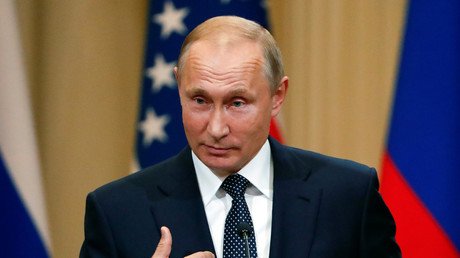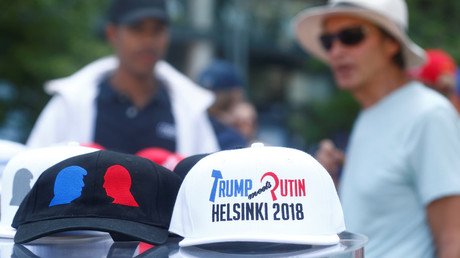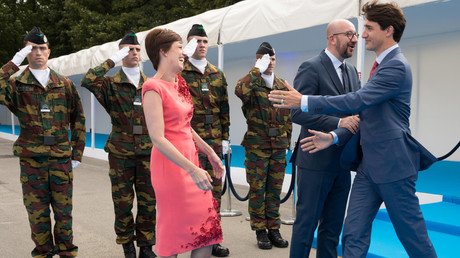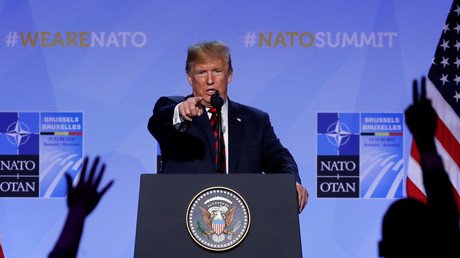Putin-Trump summit: Not Munich, Pearl Harbor or Yalta, just Helsinki
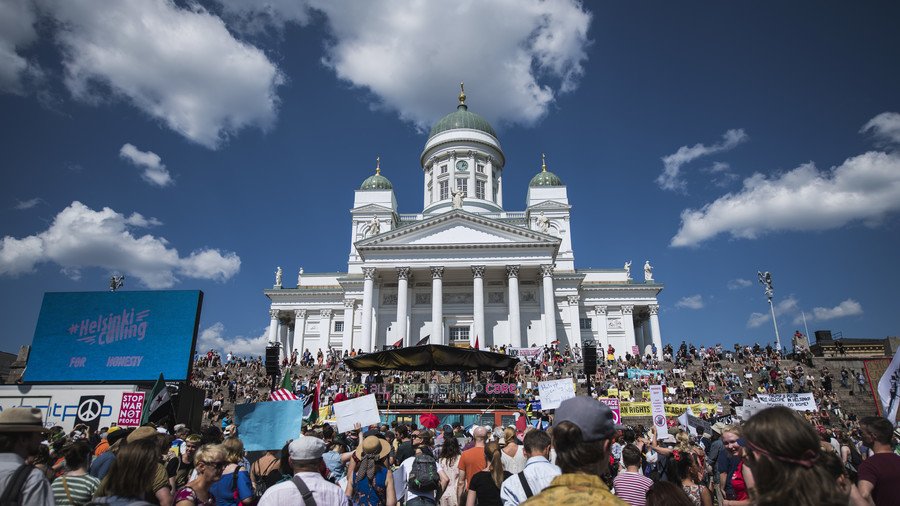
US pundits used terms like "Munich," "Pearl Harbor" and "treason" to describe the Helsinki Summit. In reality, it was a pretty harmless encounter which changed little.
MOSCOW - Gary Kasparov, the former Soviet chess grandmaster turned anti-Russia rabble-rouser, probably best conveyed the madness. "I'm ready to call this the darkest hour in the history of the American presidency," he tweeted. Now, just imagine reading that from Iraq, Vietnam or Hiroshima.
I'm ready to call this the darkest hour in the history of the American presidency. Let me know if you can think of any competition.
— Garry Kasparov (@Kasparov63) July 16, 2018
Especially given it amounted to a hot-take on nothing much at all. Because the most Monday's event betrayed was that Donald Trump has little understanding of high-level diplomacy and insufficient clout to deliver his foreign policy agenda. If he actually has one, of course.
By early morning, Trump had already enraged his own elites. While his tweet blaming his own country for the dreadful state of US-Russian relations might have been accurate, it was poor politics. And, predictably, the "swamp" launched into a full frenzied attack.
When, a short time later, the Russian foreign ministry replied with the words "we agree," the US establishment blew a collective fuse.
Sixties stress
For decades, US experts regarded the 1961 Nikita Khrushchev-John F Kennedy encounter as an embarrassment, as the rough and tumble Russian easily emerged with the upper hand. And, yesterday, much commentary compared Trump's performance to JFK's humiliation.
But this is hyperbole. That summit led to the Cuban Missile Crisis, whereas here were two leaders attempting to reduce tensions. And both were more interested in playing to their domestic bases than creating the conditions for World War Three.
Let's face it, unless the Washington establishment makes a very unlikely about-turn, the Russia-US confrontation will last for decades and outlive both the Trump and Putin presidencies because it has a simple root.
In 1991, Russians believed they were joining the US-led international order as equal partners and the Americans considered Moscow to be a defeated empire. Meaning, much like Germany in 1945, they expected Russia to fall into line and suck it up, albeit without a Marshall Plan. Washington's strategy failed because the economy collapsed, Russians lost their thirst for liberalism, and by a stroke of luck, a competent government, blessed with high oil prices, managed to perform an economic resurrection before it was too late.
By 2007, Putin had drawn red lines about NATO expansion in Munich, but the US didn't listen and now we are where we are. That's it, in simplistic terms, because unlike the rest of Europe, Russia defines its own national interests, rather than taking instruction from Washington. And that's just how it is, and it's unlikely to change, barring some sort of catastrophic fiscal or state collapse.
Something the US already gambled on during the past decade. And the plan hasn't worked out.
Roll the dice
Trump knows this. But he's powerless to change course. Thus, the best Moscow can do is seek good relations with him, in the hope things don't get worse in the immediate term while it awaits the conclusion of its own gamble: that the US desire for unipolar hegemony is toppled by either domestic events, the rise of China, the fracturing of the Atlantic alliance, or a combination of the three.
Aware of how delicate the US position is, some well-placed Moscow sources believe Trump's real agenda is to establish an alliance with the Kremlin against Beijing. Something the same insiders dismiss as a non-runner as long as Putin holds the reins.
Anyway, back to Helsinki. The US media covered the summit like it was a Tyson-Holyfield or McGregor-Mayweather bout. But those fighters don't have deep states to consider. Putin conceded he wanted Trump to win in 2016 "because he was for the normalization of relations" but strongly denied the Russian state had interfered in the election process. Trump, who knows pushing too hard on this topic could de-legitimize his own presidency, accepted Putin's reassurance.
Despite arriving directly from the United Kingdom, Trump didn't publicly bring up recent events in Salisbury. Something which mainly served to badly expose the limits of British diplomatic power in the Brexit age.
Nothing new
Nevertheless, let's look at the hysteria again. Because many US news outlets and pundits would have you believe Trump handed over the family silver to Moscow. Which is nonsense.
In reality, hardly anything changed. Trump didn't recognize Crimea, threaten to walk away from NATO or withdraw from Syria. He also didn't announce he was pulling US bases out of Germany or embracing the Nord Stream pipeline. Instead, he spent last week intimating the US would compete with the planned project, using its own Liquid Natural Gas.
To any reasonable observer, there isn't much Putin and Trump can really do for each other right now. Moscow won't betray Iran or hand over Edward Snowden, for instance. And Trump has no intentions of hanging Ukraine out to dry or removing US missiles from eastern Europe. So, the best the two men can do is try to get along personally and keep tensions under some sort of control. If relations ever improve, it will be down to unglamorous diplomatic processes, organized through back channels, in private places. Not via summit extravaganzas like we witnessed in Helsinki. In the social media age, these events are more about showbiz than real political progress.
Think your friends would be interested? Share this story!
The statements, views and opinions expressed in this column are solely those of the author and do not necessarily represent those of RT.

